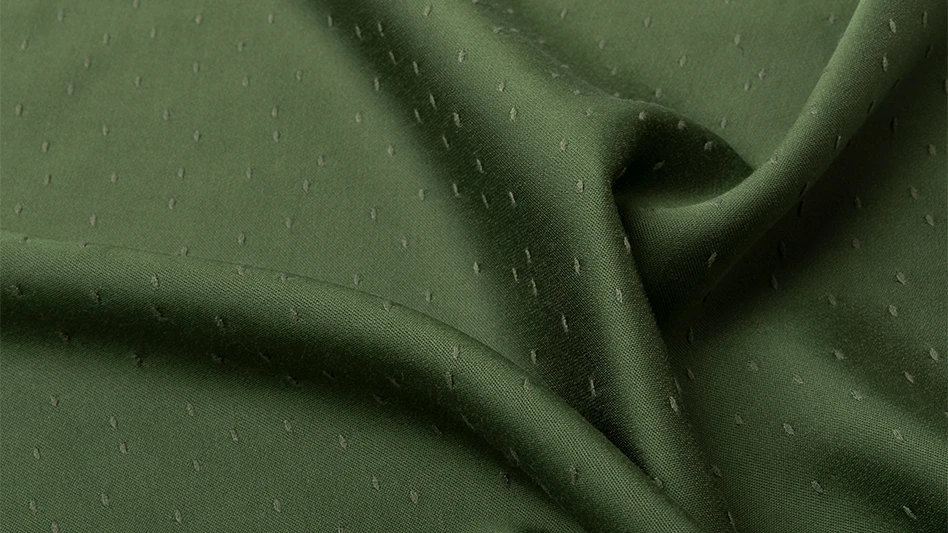
Photo courtesy of Eastman
Specialty materials company Eastman Chemical Co., based in Kingsport, Tennessee, has received the Global Recycled Standard (GRS) certification for its Naia Renew cellulosic fiber portfolio, certifying the fiber’s recycled content, chain of custody, social and environmental practices and chemical restrictions.
The GRS certification process is managed by Lamesa, Texas-based nonprofit Textile Exchange. The GRS and Recycled Claim Standard (RCS) set the criteria for third-party certification of recycled materials and chain of custody, with the GRS including a 50 percent minimum recycled content percentage and additional social and environmental requirements related to processing and chemical use.
According to Textile Exchange, the GRS and RCS have three main objectives: align definitions of “recycled” across different applications, verify recycled content in products and give brands and consumers a means to make informed buying decisions. Additional efforts by the GRS include reducing harmful impact of production on people and the environment, providing assurance that products are produced in a more climate-friendly way and encouraging higher proportions of recycled content.
“We’re honored to add GRS certification to our list of Naia certifications that support our sustainability goals,” says Claudia de Witte, sustainability leader for Eastman textiles. “Third-party certifications help us build our brand trustworthiness. It’s our goal to make sustainable textiles available to all, and we do that by building trust with our customers and collaborators.
“This certification adds even more credibility to our fibers and our sustainability story.”
Naia Renew is made from 60 percent wood pulp and 40 percent recycled plastics generated by Eastman’s carbon renewal technology (CRT), an integrated, molecular recycling technology that breaks down scrap plastics, like postconsumer carpet fiber and plastic packaging, into molecular building blocks used in manufacturing.
In June, Textile Exchange broadened its range of chemical recycling technologies eligible for mass balance under its Alternative Volume Reconciliation (VR2) policy. The expansion included gasification—the technical description of Eastman’s CRT recycling process—and the company says in a statement that the policy update was critical because it allowed CRT to be audited for GRS certification.
“Collaboration is one of Eastman’s greatest strengths,” de Witte says. “That’s why we continually engage with industry leaders and associations to help shape the future of sustainable textiles. We’re thrilled Textile Exchange made the decision to expand the scope of VR2 to include gasification. This is a big win for Naia and the future of textiles sustainability.”
Eastman is investing heavily in its molecular recycling operations. In its 2023 Sustainability Report released Nov. 16, CEO Mark Costa reports the company is investing approximately $2.25 billion to build three facilities, including one of the world's largest methanolysis plants in Kingsport, a polyester depolymerization facility in France and another U.S. site yet to be announced.
As of early November, Eastman officials said the Kingsport site was approaching startup, noting 90 percent of the systems had been hydrotested and more than 50 percent of plant systems had been turned over to operations. The facility was expected to increase to 100 percent operational by mid-November, but the company has not provided an update on its startup.Latest from Recycling Today
- BMW Group, Encory launch 'direct recycling’ of batteries
- Loom Carbon, RTI International partner to scale textile recycling technology
- Goodwill Industries of West Michigan, American Glass Mosaics partner to divert glass from landfill
- CARI forms federal advocacy partnership
- Monthly packaging papers shipments down in November
- STEEL Act aims to enhance trade enforcement to prevent dumping of steel in the US
- San Francisco schools introduce compostable lunch trays
- Aduro graduates from Shell GameChanger program





